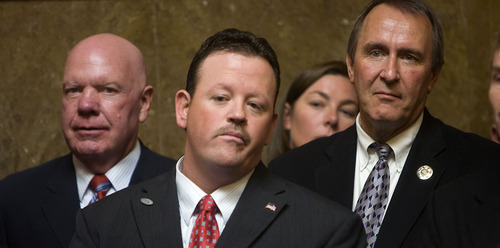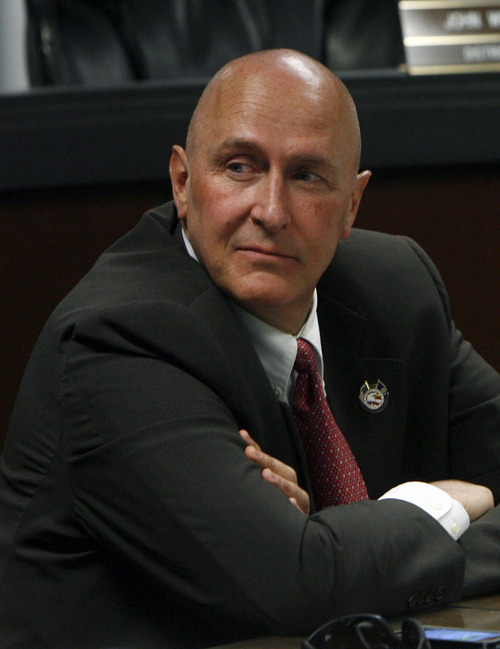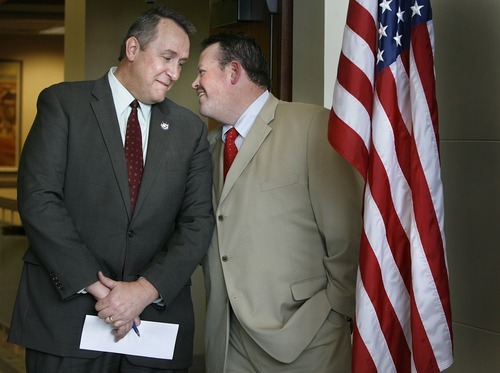This is an archived article that was published on sltrib.com in 2012, and information in the article may be outdated. It is provided only for personal research purposes and may not be reprinted.
Carl Wimmer didn't sign the Utah Compact. He was endorsed in his congressional run by anti-illegal immigration firebrand Russell Pearce. And he has fought tirelessly against in-state tuition for undocumented students.
Utah Attorney General Mark Shurtleff is a national pitchman for the compact. He believes Pearce-type rhetoric is killing the GOP among Latinos. And he argues the party needs to move to a more moderate stance on illegal immigration.
And yet, Shurtleff this week endorsed Wimmer in the 4th Congressional District race.
Irresistible force meets immovable object?
"I am where I am for a number of reasons," Wimmer said. "I respect Attorney General Shurtleff on where he is on the issue, and he'll always have access to me."
Said Shurtleff: "I told Carl to moderate his stance."
And if he doesn't?
"Then I'll lead the opposition to get him out in two years," Shurtleff warned.
Utah's outgoing attorney general acknowledges that his national profile on illegal immigration has grown since the state fought to differentiate itself from Arizona by passing a series of reform bills, including a guest-worker law set to take effect in 2013 that was coupled with a watered-down version of Pearce's enforcement-only law.
The Utah Compact — signed in 2010 by a collection of religious, business, law enforcement and political leaders — was a step toward framing the immigration debate in more compassionate terms and spawned similar compacts in Indiana and Maine. Shurtleff has even worked toward drafting a national version of the Utah document.
He has also criticized Republicans for using "shrill" rhetoric on the issue.
But Shurtleff said he has known Wimmer for a long time and had agreed to endorse him more than six months ago.
"I'm not a one-issue guy. I support [former Massachusetts] Governor [Mitt] Romney, even though I think he's dead wrong on immigration," Shurtleff said. "With Wimmer, through several years in the Legislature, he was a champion on law enforcement issues. He was a guy I could go to and know he'd support my office on a wide range of issues."
And Wimmer said Shurtleff's support — coupled with that of Pearce, the recently recalled Arizona Senate president — shows him to be able to draw a range of viewpoints.
Still, the endorsement surprised Michael Clara, former chairman of the Utah Republican Hispanic Assembly, who steered that group's efforts away from the enforcement-only approach and worked with Shurtleff to that end.
"It was a head scratcher," Clara said. "It's an odd couple."
Ali Noorani, executive director of the National Immigration Forum, believes Shurtleff might work to move Wimmer away from immigration hard-liners.
"We need members of Congress who are going to be in support of reforming our broken immigration system," Noorani said. "If someone like Mark can move candidates in that direction, that's great. We like to see our allies use their political influence to move candidates, and I'm confident Mark is pushing Wimmer to be in support of comprehensive immigration reform."
On the flip side, Wimmer said he hasn't heard any supporters, who like his tough immigration approach, suggest they were troubled by Shurtleff's endorsement.







